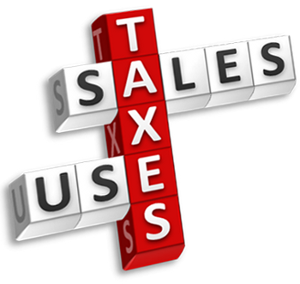Sales Tax
Missouri and North Dakota Create Sales and Use Tax Exemptions for Data Storage Centers
In April, both Missouri and North Dakota enacted legislation creating sales and use tax exemptions for new and expanding data storage centers, according to Ryan, a global tax services firm.
Apr. 29, 2015

In April, both Missouri (Senate Bill 149) and North Dakota (House Bill 1089) enacted legislation creating sales and use tax exemptions for new and expanding data storage centers, according to Ryan, a global tax services firm with the largest indirect and property tax practices in North America and the seventh largest corporate tax practice in the United States.
Missouri Senate Bill 149 (“S.B. 149”) provides several state and local sales and use tax exemptions for data storage centers. The first exemption is for all machinery, equipment, computers, electrical energy, gas, water, and other utilities, including telecommunication and Internet services, used in new data storage center facilities. Purchases of tangible personal property for the construction of a new data storage center facility are also exempt.
In order to receive the sales tax exemption, an application must be made to the Department of Economic Development (“DED”) for certification. The application must detail that the project will result in at least $25 million of new facility investment and create at least ten new jobs with wages of at least 150% of the county average wage over a three-year period. The maximum project period to receive incentives is 15 years.
S.B. 149 also provides exemptions for expansion of existing data storage centers. Electrical energy, gas, water, and other utilities, including telecommunication and Internet services for expanded existing data storage center facilities are exempt. However, this exemption only applies to increases in consumption for utilities from the previous year.
All machinery, equipment, computers used in an expanding data storage center, and all retail sales of tangible personal property for the purpose of constructing, repairing, or remodeling any expanding data storage center are also exempt. An application must be made to the DED for certification, which shows that the project will result in at least $5 million of new facility investment over a 12-month period and create at least five new jobs with wages of at least 150% of the county average wage over a 24-month period. The maximum project period to receive incentives is ten years.
S.B. 149 also allows the DED and the Department of Revenue to conduct random audits to ensure compliance with the exemptions requirements. The bill was signed by Governor Jay Nixon on April 14, 2015, and will become effective August 28, 2015.
North Dakota House Bill 1089 (“H.B. 1089”) provides a sales and use tax exemption for enterprise information technology equipment and computer software purchased for use by a qualifying business in a qualified data center. Owners of a proposed data center must apply to the tax commissioner to be certified as a qualified data center before any related purchases are made, or else a refund may be sought retroactively. Only the first four facilities approved by the tax commissioner will qualify.
A qualified data center will consist of an aggregate 16,000 contiguous square feet or more and will have the following attributes: uninterrupted power supplies, generator backup, or both; sophisticated fire suppression and prevention systems; enhanced security with security features, including permanent security guards, video camera surveillance, an electronic system requiring pass codes, key cards, or biometric scans, such as hand scans or retinal or fingerprint recognition, to restrict access to selected personnel or other similar security features.
The exemption is also available to existing data centers that have undergone substantial refurbishment, with at least 16,000 square feet improved through methods including energy efficiency improvements, building improvements, and the installation of enterprise information technology equipment, environmental controls, and computer software.
H.B. 1089 was passed April 9, 2015 but retroactively effective to January 1, 2015. The exemptions under H.B. 1089 are currently effective through December 21, 2020.
